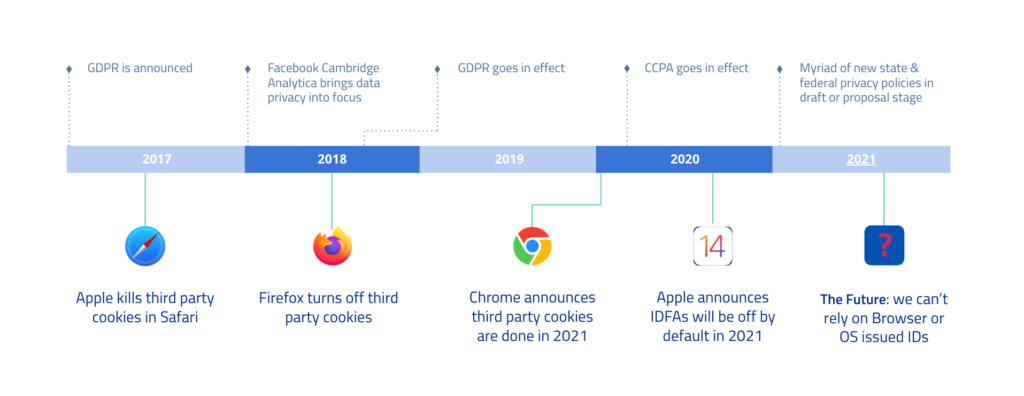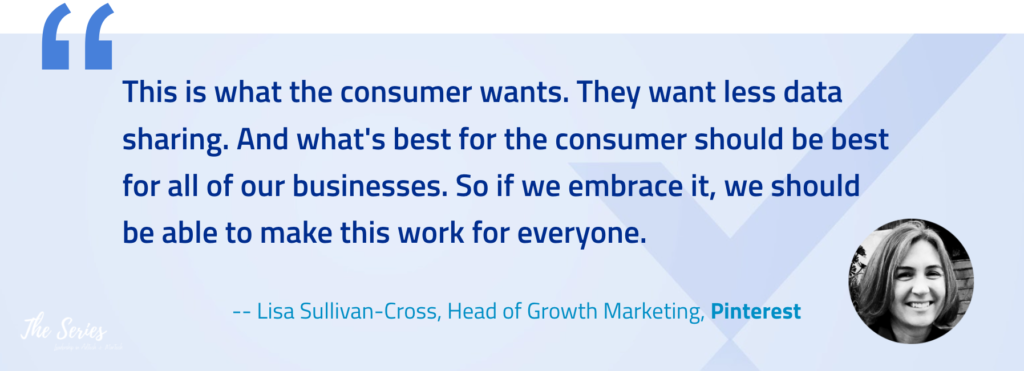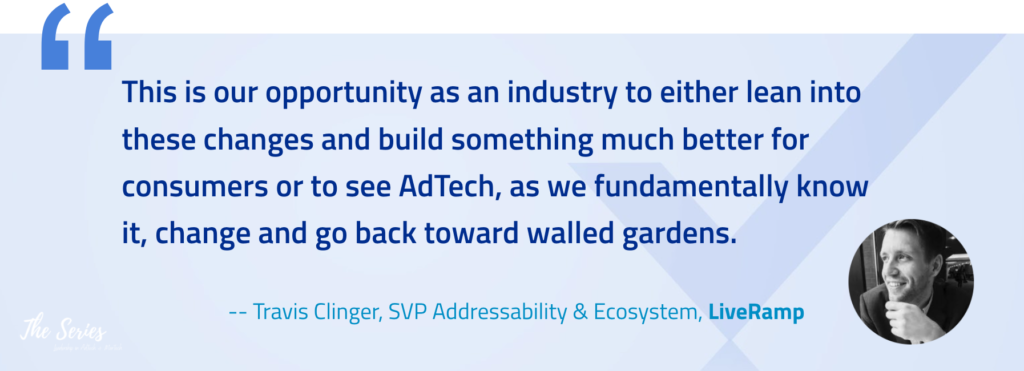While the far-reaching impact of COVID-19 dominated all facets of life and business this year, the advertising industry was dealt an additional blow in 2020. After several years of new legislation and policy changes, Apple and Google both announced more major technological moves in support of consumer protections.
However, unlike the pandemic, these announcements should not have been unexpected. This timeline reveals a revolution that has been years in the making:

Len Ostroff, SVP of Criteo, summarized the situation well in a recent DigiDay article: “A new age of consumer privacy is forcing AdTech to confront some painful truths, creating existential challenges for the entire industry. The value exchange between publishers and consumers – that advertising is how consumers ‘pay’ for great content – has not been clearly communicated and is certainly not well understood.”
Anyone examining the timeline above would have to think, “Of course, this was going to happen.” The only question was when – and in 2020, we found out.
Ostensibly, Google’s third-party cookie changes and Apple’s IDFA ATT opt-in were made in the interest of “consumer privacy.” However, if we’re being honest, these moves were not entirely altruistic.
For example, Apple has dramatically reduced brands and publishers’ ability to use data and IDs for ad targeting, monetization, and measurement with its iOS 14 cookie changes and its proposed ATT “Opt-In” feature (expected February 2021). Meanwhile, Apple’s collection and use of data for App Store search ads, and their measurement solution SKAdNetwork, are not governed by these changes, but rather are controlled by toggles that remain buried deep in the Apple iOS settings, which are much less likely to be accessed or changed. On the surface, the point of ATT “opt-in” was to move privacy controls out of dense settings menus, and directly in front of the user (great change), however Apple itself isn’t operating on this paradigm. “Serendipitously”, this duality increases the value of Apple’s ad solutions, as they will have fewer opt-outs and perfect addressability by default, while apps will have more opt-outs and will be forced to “ask for addressability”.
Similarly, Google announced the third-party cookie and prospective AAID changes in the name of privacy. However, those changes also increase the value of its ad inventory and ad solutions, for which it can maintain addressability given Google’s massive authenticated user base.
Despite a set of challenging changes and suboptimal implementations, the response from the AdTech world has been stronger and more unified than many imagined. There seems to be a deep consensus that the industry needs improved transparency and consumer controls if we want an addressable future. Specifically, initiatives like IAB ReArc, The Trade Desk UID 2.0, and DoveKey (iteration from Turtledove and Sparrow) have drawn a new level of collaboration from the industry to align consumer privacy, legislation, and policy, and the technology frameworks needed for an addressable Open Internet.
This sentiment was directly reflected in the comments we heard from our panelists at TrueData’s The Series event in late October.
Lisa Sullivan-Cross, Pinterest’s head of Growth Marketing, told us, “This is what the consumer wants. They want less data sharing. And what’s best for the consumer should be best for all of our businesses. So if we embrace it, we should be able to make this work for everyone.”

LiveRamp SVP Travis Clinger put it this way: “This is our opportunity as an industry to either lean into these changes and build something much better for consumers or to see AdTech, as we fundamentally know it, change and go back toward walled gardens.”

Throughout 2020, we’ve seen many thoughtful perspectives on: the technical details of the changes; how they’ll impact our industry and potential anticompetitive practices; and the promising new level of collaboration our industry has demonstrated in its efforts to solve these challenges in a privacy-first and transparent manner. In addition to the content linked in the body, additional resources are linked at the end of the article.
As we look to the future, this is a good time to reflect on what we still don’t know – and the questions we must still wrestle with, including:
In the second and final installment of this blog series, I’ll delve deeper into each of those questions and we’ll see if our visionary powers are as good as our hindsight.
Reference Bank



Subscribe For Updates